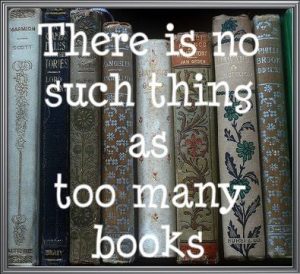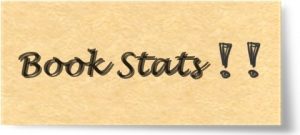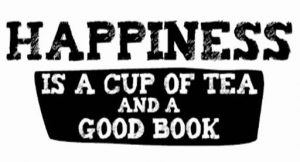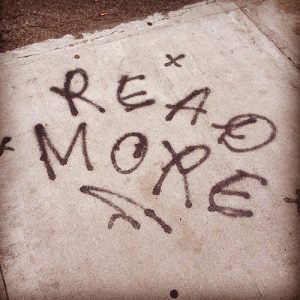Grow with good reading habits
According to one of the greatest thinker and philosopher of the nineteenth century E.B.Huey of MIT ‘Reading is the means by which the world does a large part of its work………. The sligh test improvement either in the page or in the method of reading means a great service to the human race. Most of us accumulate knowledge by reading. Reading is an opportunity not only to gather information – to examine facts, to refurnish our knowledge, and to broaden our vocabulary. Reading is an art, which improves with practice. Books can really be the best friends of a human.
test improvement either in the page or in the method of reading means a great service to the human race. Most of us accumulate knowledge by reading. Reading is an opportunity not only to gather information – to examine facts, to refurnish our knowledge, and to broaden our vocabulary. Reading is an art, which improves with practice. Books can really be the best friends of a human.
Reading – is it a lost art?
According to the National Endowment for Arts (NEA) in USA, less than 50% of adults are reading literature. The decline in reading has been termed as a “national crisis” in USA. This most progressive and developed nation in the world is so concerned about the reading habits of its citizens. The decline in reading is across the board. From 1982 to 2002 the USA has lost 20 million potential readers due to their lost interest in reading and this interest they have lost due to television, the NEA reports. It further reports that men are reading less than women. The worst hit reading group is those of younger ages, the loss is 28% among the younger generation. It is really appreciable that this powerful country in the world keeps a check on such a less concerned factor of life for rest of the world. By showing the concern about the reading of their nationals America has just proved the importance of reading to the rest of the world.
Course like management call for extensive reading habits; both faculty and students require reading up for knowledge up gradation. As per the norms of AICTE, the management institutes need to have the required number of books, journals and titles in their libraries. The AICTE strongly believes in developing reading habits in the students of technical education programs. Besides the text books a management students is required to read journals, business magazines, reference books, and most important the daily news paper. Management is an ongoing process in the environment in all walks of life, which is covered only by the newspapers. While the concepts are discussed in the classroom, a student is expected to correlate it to the happening in the corporate and the world at large. By reading the newspapers a student can acquire vast knowledge pool.
gradation. As per the norms of AICTE, the management institutes need to have the required number of books, journals and titles in their libraries. The AICTE strongly believes in developing reading habits in the students of technical education programs. Besides the text books a management students is required to read journals, business magazines, reference books, and most important the daily news paper. Management is an ongoing process in the environment in all walks of life, which is covered only by the newspapers. While the concepts are discussed in the classroom, a student is expected to correlate it to the happening in the corporate and the world at large. By reading the newspapers a student can acquire vast knowledge pool.
 People who love reading hold a special kind of magic – they have a large knowledge bank and therefore they are confident while talking, they have rich examples to quote, good vocabulary, such people are welcome everywhere. Reading enhances imagination – endless curiosity that causes the mind to grow in a healthy way. The more one reads, the more efficiently one can write. Different authors have different styles of writing. While writing reports, assignments, and communications we can follow different styles, which have appealed to us. Reading broadens our insight on various matters; it establishes our thinking and encourages us to get involved in our community and environment. One research in USA suggests that staying intellectually active – particularly in linguistically complex ways can help to stave off Alzheimer’s.
People who love reading hold a special kind of magic – they have a large knowledge bank and therefore they are confident while talking, they have rich examples to quote, good vocabulary, such people are welcome everywhere. Reading enhances imagination – endless curiosity that causes the mind to grow in a healthy way. The more one reads, the more efficiently one can write. Different authors have different styles of writing. While writing reports, assignments, and communications we can follow different styles, which have appealed to us. Reading broadens our insight on various matters; it establishes our thinking and encourages us to get involved in our community and environment. One research in USA suggests that staying intellectually active – particularly in linguistically complex ways can help to stave off Alzheimer’s.
The learning resource center – libraries
In the higher education institutions library is the most important factor of the infrastructure. Information provision is an ongoing feature of the management institutions. The AICTE norms for the library in a management institute is: minimum reading space for 20% of the total strength of the students, issue desk, receiving desk, work space for library staff, computer for online information, printer, duplicating machine, copier, typewriter, cutting, binding and stitching machine, micro film reader and telephones are a must in the library. Stacking of minimum 3,000 books with at least 10 periodicals is a minimum requirement; besides every year minimum 120 books and 10 periodicals should be added to the total strength of books. The libraries need to be well-lit, comfortable temperature monitoring and good seating arrangements are supposed to be provided for the users. The library atmosphere is should be reader-friendly. The readers should be made comfortable to sit and read in the library. The atmosphere in the library should be serene and intellectually motivating.
infrastructure. Information provision is an ongoing feature of the management institutions. The AICTE norms for the library in a management institute is: minimum reading space for 20% of the total strength of the students, issue desk, receiving desk, work space for library staff, computer for online information, printer, duplicating machine, copier, typewriter, cutting, binding and stitching machine, micro film reader and telephones are a must in the library. Stacking of minimum 3,000 books with at least 10 periodicals is a minimum requirement; besides every year minimum 120 books and 10 periodicals should be added to the total strength of books. The libraries need to be well-lit, comfortable temperature monitoring and good seating arrangements are supposed to be provided for the users. The library atmosphere is should be reader-friendly. The readers should be made comfortable to sit and read in the library. The atmosphere in the library should be serene and intellectually motivating.
 A good institute always makes decent monitory provisions for buying relevant titles, magazines, journals and newspapers for its library. Besides the textbooks, reference books, general reading, autobiographies and business histories are kept at library. The traditional view of library as the sole repository and supplier of information needed to support teaching, learning and research is no longer considered adequate.
A good institute always makes decent monitory provisions for buying relevant titles, magazines, journals and newspapers for its library. Besides the textbooks, reference books, general reading, autobiographies and business histories are kept at library. The traditional view of library as the sole repository and supplier of information needed to support teaching, learning and research is no longer considered adequate.
The emphasis of library as place or a location of storing information is lost in recent times as most of the people going for higher education can gather information from various sources, but certainly the books, periodicals and journals it holds gathers importance. Of course the information to which it provides access matters. Information management center – that’s how libraries are looked up to. Purely stacking books and journals is not the aim. These libraries require information management, instead of just stacking books and periodicals how access is given to information and in how many novel ways is what matters. Novelty and Innovation are the two key words for library management. There are many libraries that have heap of substance on various subjects but due to laxity and slackness the essence of books are lost completely. With emergence of the new technologies/software for storing/classifying/accessing and transmitting information the library management is becoming more challenging. The operating styles of the information resource have undergone many changes in the last decade. Each institute needs to fundamentally reassess the way it plans and provides for information needs of those working within it; and place the library in meeting these needs.
An ideal librarian
I recall my interaction with a librarian, her name was Parvathy Iyer. I have never seen another librarian like
her again. Parvathy’s world was her library. She had knowledge on each subject. Her library was well stacked, books neatly kept, properly covered with plastic sheet, numbered, indexed and most importantly no dust accumulated on the books. Her library was spick and span. Parvathy read books; she would make small notes. When students would go during their exams to read in the library, Parvathy would tell them to refer particular books. She would go a step ahead and ask faculties also to refer at least three books for a subject. Parvathy used to interact with faculty members, other librarians and subject experts to gather more information on the assortment of books. Above all, she was very kind, polite and pleasing to interact with. She was an ideal librarian. If a librarian lacks reading habits, he/she is unfit for the job.
Make reading essential for them: Most of the academic programs are assessed on assignments that call for lots of information gathering. The curriculum is project based. With advent of Internet, the students by logging on sites get loads of information, which can easily be cut, copied and pasted. The students merely present the same without taking any other efforts. Therefore, it is the task of the faculty to inculcate reading habits in the students. The faculty can design assignments and projects based on particular books or journals; they can design the assignments in such fashion that the students will compulsorily have to read the text before making presentations. There is a vast ocean of knowledge – the more we read, the more we discuss and the more we get ready to serve better in jobs. Getting organized and using time to read a lot are keys to succeeding academically.
What does it take to be an effective reader?
There is a big difference between reading effectively and merely browsing through pages. A good reader establishes a relationship with the book.
How many of the following good reading habits do you have?
- You are aware of what you are reading.
- Adjust you reading strategy for different tasks.
- Can identify key points in different textbooks, journals, periodicals and magazines.
- Are continuously carrying a dictionary; making note of unfamiliar words and checking meaning of them.
- Look for key words that indicate relationship between ideas? Have read widely in your professional area for broad knowledge and current thinking.
- Can take effective notes while reading.
- Question yourself as to what you have grasped from the book and its significance to your existing knowledge base.
- Know when to stop while reading, understand when you are tired, when your mind is not absorbing further information.
 Discuss your reading: it is fun to share your knowledge. The more you’re spreading your knowledge the more you receive. Make this your regular habit. Discuss your reading with your tutors, mentors, parents, siblings and friends. You will realize that while discussing your reading with others some points become clearer and meaningful. Secondly, these people can also give few more tips on your subject and suggest you some more reading tips. Of course, one caution – discuss your reading with like minded people else all that you will get is bored looks. Explore on line resources by using effective browsers. Use on-line catalogue and literature database. These have advantages of knowing fresh and current research going on in your subject areas and they give you meaningful insight too. While discussing your points with others, you also learn the art of explaining – thus improving your oratory. While discussing, you learn to discuss point by point to make others understand the flow of the logical order. A recent research on this subject establishes that people who discuss their reading with others rarely forget what they have read. After you discuss your reading the text is difficult to forget.
Discuss your reading: it is fun to share your knowledge. The more you’re spreading your knowledge the more you receive. Make this your regular habit. Discuss your reading with your tutors, mentors, parents, siblings and friends. You will realize that while discussing your reading with others some points become clearer and meaningful. Secondly, these people can also give few more tips on your subject and suggest you some more reading tips. Of course, one caution – discuss your reading with like minded people else all that you will get is bored looks. Explore on line resources by using effective browsers. Use on-line catalogue and literature database. These have advantages of knowing fresh and current research going on in your subject areas and they give you meaningful insight too. While discussing your points with others, you also learn the art of explaining – thus improving your oratory. While discussing, you learn to discuss point by point to make others understand the flow of the logical order. A recent research on this subject establishes that people who discuss their reading with others rarely forget what they have read. After you discuss your reading the text is difficult to forget.
Strategies for developing reading skills:
- Adapt reading habit for various purposes: Start reading not just for the sake of your examinations but also on various
 occasions. Start reading material for various reasons e.g if you are going to participate in a singing competition, act in a dram, if you planning to for a dance party, for cooking new dishes, for remedy of a disease, for decorating your room, for gardening, if your dating somebody for many such various activities filled in your life start reading relevant text. This will enrich your activities plus develop a habit of reading in you.
occasions. Start reading material for various reasons e.g if you are going to participate in a singing competition, act in a dram, if you planning to for a dance party, for cooking new dishes, for remedy of a disease, for decorating your room, for gardening, if your dating somebody for many such various activities filled in your life start reading relevant text. This will enrich your activities plus develop a habit of reading in you. - Start keeping a reading list handy: whenever you are browsing through Internet, books, journal, magazines etc keep a notebook along side and keep making list of various reading which you would like to read later. This habit also helps you in future when you need to make presentations, report on specific topics.
- Read selectively: start reading the introduction, author’s view, content pages, summaries etc regularly. This gives you the key point for reading the text. Also, this develops a habit of grasping quickly whether the book or magazine is of relevance for you. It also helps you for detailed reading.
- Read critically: question yourself many times. Who is the author, what is his/her background, what is the authors experience on the subject, how has the author presented his/her viewpoints, whether you agree with the author’s viewpoints, whether you can relate to the viewpoint presented by the author, what cultural assumptions are made in the text, you must have read something contradictory to what you are reading – evaluate it patiently. You might face some unfamiliar situation in the text again evaluate it. Take your time.
- Seek additional sources: read something extra. Read some more titles on the subject. Additional sources will widen your knowledge on the subject.
- Analyze the main and subordinate matter: keep a notebook, dictionary, and a pen handy while reading. Keep writing the
 explanations, which you find, on your questions and queries. Analyze the book with main, secondary and tertiary ideas. This gives you a practice of analyzing the main and the subordinate matter explained in the books.
explanations, which you find, on your questions and queries. Analyze the book with main, secondary and tertiary ideas. This gives you a practice of analyzing the main and the subordinate matter explained in the books. - Familiarize yourself with the cultural codes: different cultures have different writing styles. A lot of social and cultural norms go into the writing by the authors as per their national standards. Get accustomed to the cultural tactics and codes; it is fun to read various authors once you start getting used to these codes.
- Improve you reading speed: start keeping a good pace of your reading. You will develop good speed as you go about reading more and more complex and variety of text. Read at least 10-15 words a minute. Stop in between recall what you have read. If you don’t remember read once again and try recalling. Do justice to your reading, in sense while you are reading – just do that, don’t receive or dial phone calls, don’t attend to the door bell, don’t keep your book aside till you feel satisfied.
“Don’t buy books for your shelf, buy them for yourself.” Saji Ijiyemi












































